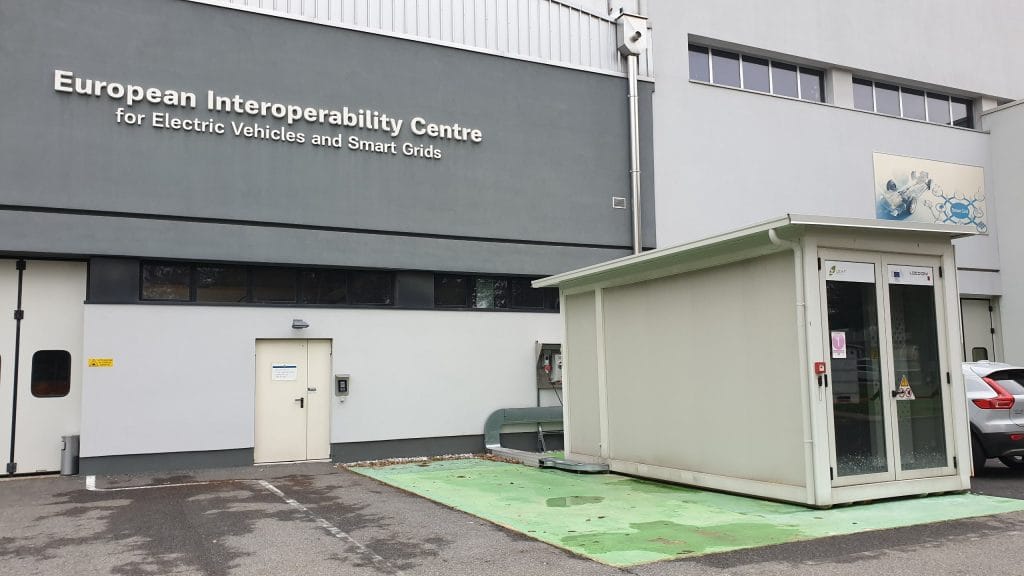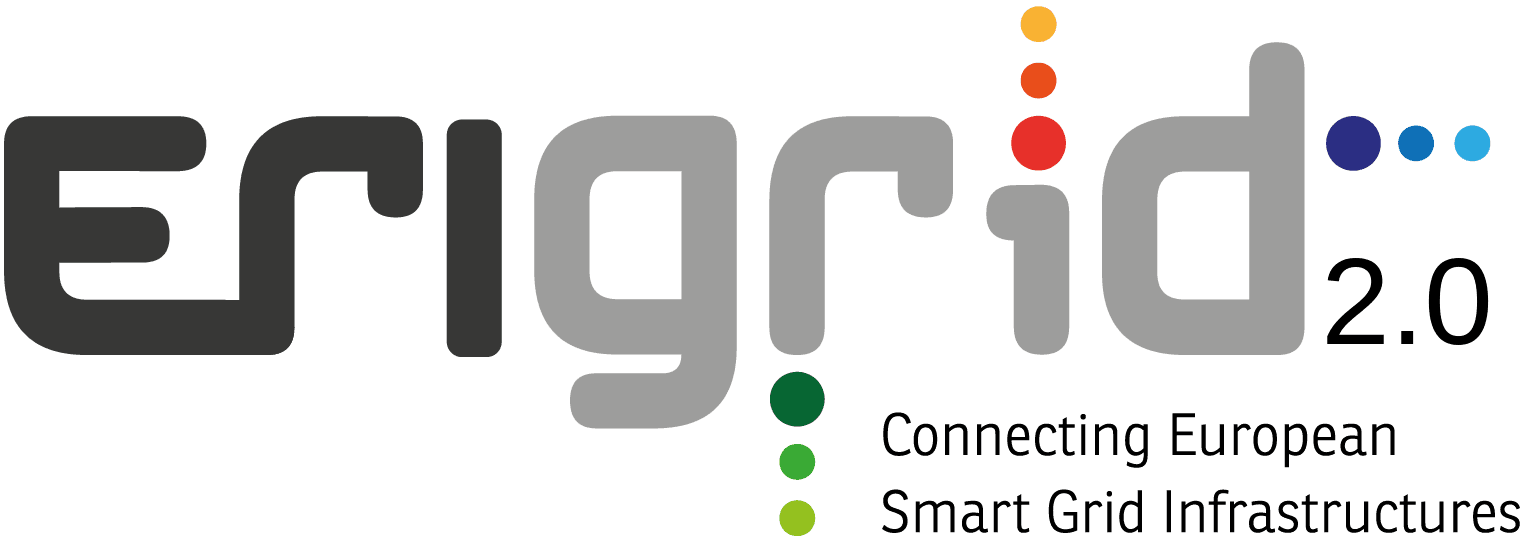
The Smart Grid Interoperability Laboratory (SGILab) of the European Commission focuses on research on the integration of the energy network technologies required for the transition to a low carbon economy.
The SGILab-IPR is a European platform for real-life test and experimentation of smart grid technologies.

It constitutes an environment where researchers explore and evaluate innovative solutions for the smart grid with the aim to support policy making, industry and other relevant stakeholders.
Location: Ispra, Italy
The lab research infrastructure allows the researchers to stimulate the sustainable development of energy systems through rigorous experimentation, evaluation and testing. Collaboration with industry fosters a careful assessment of alternative smart grid solutions with a view at their largescale deployment. Potential external users of the facilities are those with interest in testing the interoperability of their proposed solutions including industrial actors in the field and Small and Medium Enterprises (SMEs) as well as academic and R&D organizations. Experimental procedures, simulations and emulations are carried out, following accepted testing methodologies to assess the interoperability of smart grid systems and components. Identifying factors that could potentially put at risk the interoperability is paramount. The following test bed infrastructure is available in the SGILAB-IPR and supported for TA in ERIGrid 2.0:
Microgrid
- Battery Energy Storage (550kWh, 250kW)
- PV roof-top installation (60kW)
- PV Simulator 10kW
- Programmable AC (4.5kVA) and DC (8kW) loads
Battery Energy Storage Systems
- BESS: 250kW/550kWh with Li-ion batteries
Real-time Simulation
- RTDS real-time simulator
- Power Amplifiers (90kVA, / 60 kW DC)
- Battery Simulation (160kW DC input /output)
e-mobility
- 1 full electric car
- A large variety of EV chargers (from 4kW to 60kW)
- 2 electric bikes (500Wh)
SCADA, monitoring
- System for control, data collection, automatization, etc.
- Database, Back-up versioning
- Visualisation
Other equipment
- Large variety of Smart meters of different technologies
- National Instruments Data Acquisition Board
- Several Power analysers
- Oscilloscope and digital precision multimeter
- Fluke power quality analyser
As part of the ERIGrid 2.0 TA infrastructure, JRC provides the following services to TA user groups:
1. Smart grid system expertise and validation/testing activities, such as:
- Power quality (PQ) lab tests
- Smart metering testing and validation
- Energy storage system validation
- Electric vehicle supply equipment/charging system validation
2. Smart grid simulation/HIL-based activities, CHIL and PHIL
3. Battery testing and Simulation
The Joint Research Centre (JRC) is the scientific and technical arm of the European Commission. It is providing the scientific advice and technical know-how to support a wide range of EU policies. The JRC has seven scientific institutes, located at five different sites in Belgium, Germany, Italy, the Netherlands and Spain.
The JRC Smart Electricity Systems and Interoperability team is located both in Petten (NL) and Ispra (IT). We, as European Commission’s in-house science service, perform independent scientific research and support EU policy-making on transformations towards smarter and interoperable electricity systems.
Our work revolves around four pillars:
- Data Gathering and Processing – We constantly develop, update our extensive databases of power systems/networks and smart grid projects in Europe. This work feeds into our modelling, experimental and dissemination activities as explained below.
- Smart Grid Interoperability Lab – Our Lab analyses behaviours and characteristics of evolving power grids incorporating more renewables, electric vehicles, dispersed energy resources.
- Integrated Assessment – Our aim is to support policy initiative and study smart grids as complex techno-socio-economic systems with multiple physical, cyber, social, policy, and decision making layers.
- Cooperation and Dissemination – Our work builds upon synergistic cooperation with key stakeholders to reach a critical mass. Tailored communication initiatives are adopted and customised dissemination tools are developed to get our message across.”
Location
The laboratory equipment and the experimental systems of the The Smart Grid Interoperability Laboratory (SGILab) are located in building 18 in the campus of JRC in Ispra, Italy. The visitors’ offices are expected to be placed in the same building where the laboratory infrastructure is present, to facilitate their daily work.
Security
Security is a top priority, and that awareness extends to laboratories. A laboratory security system is put in place to mitigate several risks and is complementary to existing laboratory security policies. Upon arrival, the visitors will be required to watch a brief video describing the general safety rules. In addition, for safety reasons during their working period in the lab, the visitors will be asked to read and agree to the specific Operational and Safety Guidelines of the SGILab.
Applications and Experiments
For non-critical applications, and after ad-hoc training the visitors will have full access to the related facilities for the duration of the stay (with the support of JRC’s researchers and laboratory technicians when necessary). However, for critical applications, the users are not expected to operate the systems by themselves; even when safety instructions will be provided, tests will be carried out by staff of JRC. The scheduling of the experiments will be agreed and booked prior to the stay according to the availability of the involved staff and equipment and always in cooperation and direct communication with the Lab Manager. Administrative documentation for the access (contract, non-disclosure agreement, etc.) will comply with ERIGrid 2.0 common indications.
Corporate services:
JRC offers all major general corporate services (internet connection, canteen, etc.), including transportation to the JRC campus from the nearby city of Varese/Milan with a company bus. Although the expenses for accommodation are covered (please see the reimbursement of expenses below), finding accommodation remains a responsibility of the visitors. However, advice could be provided if requested. Depending on the availability, European Commission might be able to offer to the visitors accommodation in one of its own premises.
Contact Lab Manager and complementary services
The Lab Manager will contact you via email to confirm your lab requests and any additional requirements or information needed from you. As a complement to the pre-access contacts between the visitors and JRC, the stay will start with an introductory meeting with a researcher for confirming the stay conditions (confidentiality, safety indications), scheduling the activities, explaining the on-site procedures, clarifying the logistics and technical details.
In addition:
- a laboratory technician will assist the users for the installation of the devices, electrical connections, use of the specific instrumentation, preparation of a test procedure (if necessary) on the basis of the users’ requests, and programming of the experimental conditions;
- the researchers and scientific staff of JRC will support the realization and follow-up of the experiments, when possible;
- the researchers and scientific staff of JRC will support the results interpretation, data processing and analysis, and test report preparation, when possible.
In principle, a typical stay of two to three weeks is foreseen for a single user group, but this period could be extended depending on the concrete user project. The user group (usually two to three persons) can use the infrastructure for the defined time.
Reimbursement of expenses
Visitors expenses for the lab access are paid by ERIGrid 2.0 (EU H2020 Programme). This includes travels to JRC Ispra (by plane, train), accommodation, daily subsistence, and daily transportation during the stay (in case the JRC offered bus is not used).
For the user projects taking place in the SGILab, JRC will refund the stay expenses when the stay is terminated (or on agreed periods): the user must declare the incurred expenses and present the invoices/receipts to JRC to be eligible for the refund.
Logical expenses must be made by the visitor: travels should be made in economy class and conventional hotels (not luxury) or equivalent accommodation should be used.
Remote lab access is in principle not possible, but could be discussed with the hosting organisation beforehand.
Do you have questions left? Feel free to contact us below.
If your enquiry contains strictly confidential information, please leave your contact details below and the lab host will contact you personally.




